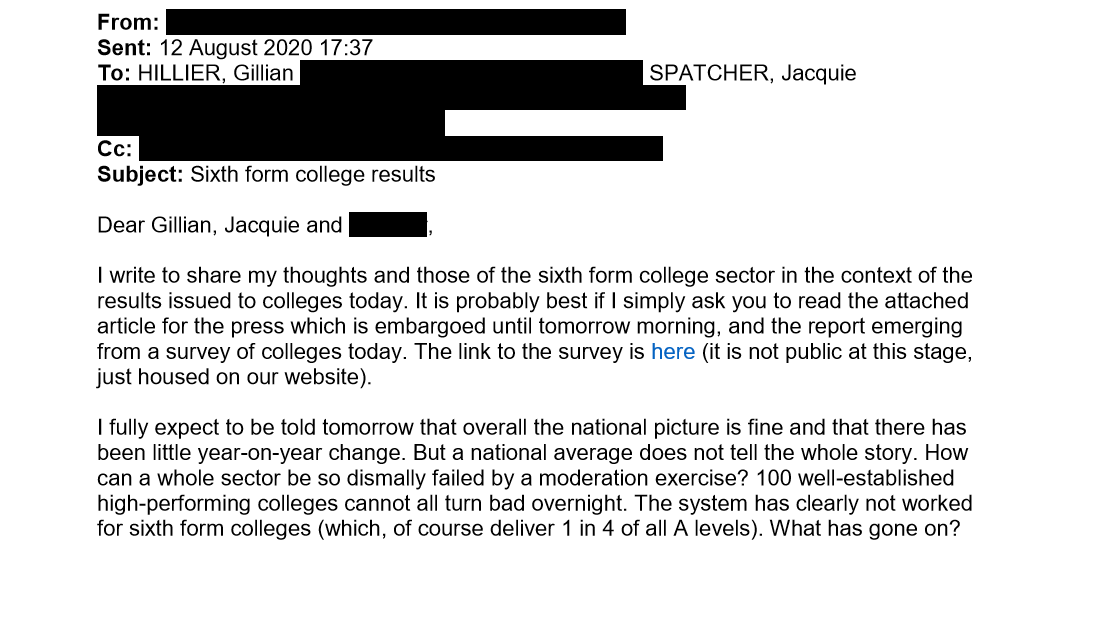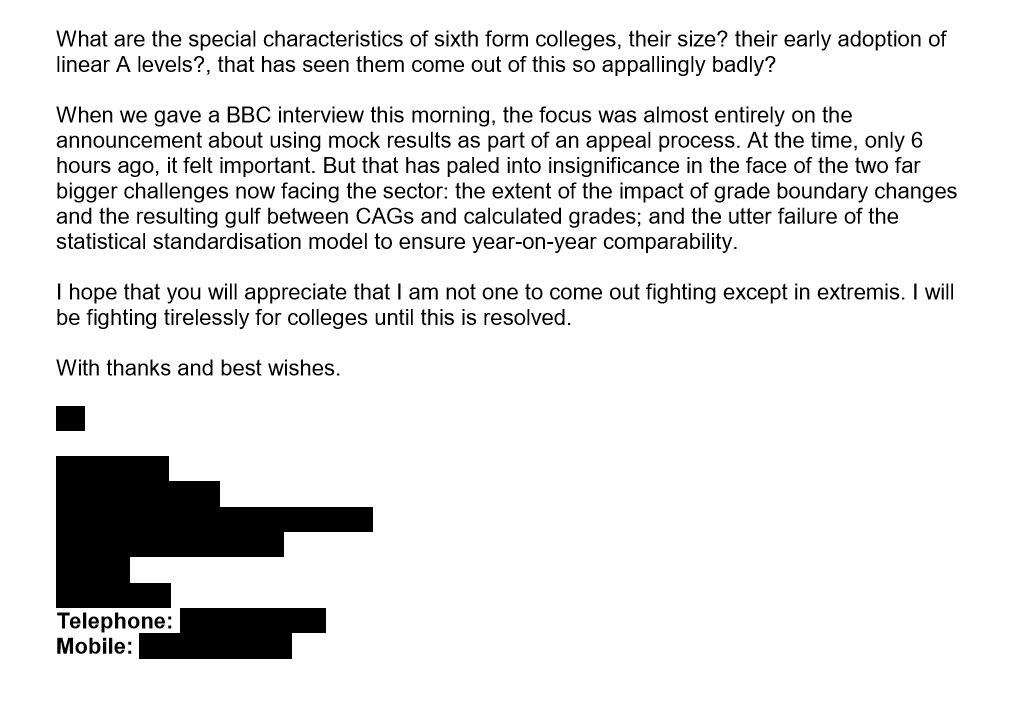The Department for Education was fully aware that a storm was brewing over this summer’s A-level grading early on results day, Tes can reveal.
Education secretary Gavin Williamson has said that he only became aware of “unfairnesses in the grading system” over the following weekend, which was when he decided that a U-turn on the grades was “the right thing”.
But emails obtained by Tes show that his officials knew things were “not good” on Thursday 13 August, two days before the weekend and four days before the eventual U-turn.
In the email exchange between the DfE and Ofqual, department officials warned the regulator about an email from the Sixth Form Colleges Association questioning why colleges had come out of the 2020 grading process so “appallingly badly”.
Exclusive: Ofqual unable to see how grading hit schools
Revealed: DfE tried to spin private school A-level gain
Background: Ofqual knew GCSE and A-level results were ‘unreliable’
“It’s not good,” an email from Jacquie Spatcher, DfE deputy director, said as she highlighted the SFCA email to Ofqual.
The summer A-level results crisis
She said she missed the email, sent on 12 August, “in the heat of the action yesterday” and hoped the SFCA “gave you a heads up separately”.

The email from the SFCA asked how “a whole sector [can] be so dismally failed by a moderation exercise”, adding that 100 “well-established high-performing colleges cannot all turn bad overnight”.
On A-level results day on 13 August, prior to the government’s U-turn on grading that saw students awarded their teacher-assessed grades, over 96 per cent of sixth-form college principals said the grades received by students were lower than those predicted by their teachers.
“What are the special characteristics of sixth-form colleges - their size? Their early adoption of linear A levels? - that has seen them come out of this so appallingly badly?” the SFCA email added.
It said the sixth-form college sector now faced significant challenges over “the extent of the impact of grade boundary changes and the resulting gulf between CAGs [centre-assessed grades] and calculated grades; and the utter failure of the statistical standardisation model to ensure year-on-year comparability”.


Ofqual board meeting minutes have already revealed that Mr Williamson had been in contact with the regulator on Tuesday 11 August, two days before A-level results day, to discuss falling confidence in calculated grades.
The latest emails were obtained through a freedom of information request from Tes to Ofqual.
But the DfE has yet to decide on an identical FOI request from Tes made more than 16 weeks ago - a delay heads have condemned as “unacceptable”.
Students were left devastated on A-level results day, with many receiving grades far lower than those they had been predicted and nearly two in five teacher-assessed grades downgraded by Ofqual’s algorithm prior to the government U-turn on the issue.
On 17 August, Ofqual announced a U-turn whereby students would receive their teacher-assessed grades after all.



